Media and Glossaries
Fighting racism and discrimination and working for an open and tolerant society is a common task. In order to live up to this responsibility, we should sensitize ourselves and inform ourselves about the background. Below you will find various materials, from basic terms to in-depth analysis in documentaries and books. Our goal is to support people in dealing with and advocating against racism and discrimination.
Literature

Noah Sow – Deutschland Schwarz Weiß (2018)
In "Deutschland Schwarz Weiß", Noah Sow sheds light on structural and everyday racism in Germany and shows how Black people and people of color are affected by it. She explains how media, language and cultural stereotypes unconsciously reinforce racist thought patterns. Everyday racism and microaggressions relegate Black people to an outsider role, and cultural appropriation underscores disrespect for marginalized groups. Sow calls for awareness and personal responsibility in dealing with racism and shows ways to more empowerment and anti-racism work.
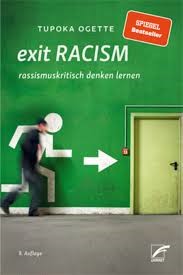 Exit Racism – Tupoka Ogette (2018)
Exit Racism – Tupoka Ogette (2018)
In "Exit Racism", Tupoka Ogette leads readers through an intensive examination of racism and white privilege in Germany. She explains how racism has grown historically and manifests itself in our society today, often invisible to those who are not directly affected by it. With personal approaches and exercises, she invites you to recognize and critically question your own racist thought patterns and prejudices. Ogette calls for an active exit from racist structures and calls for an anti-racist attitude that emphasizes empathy and personal responsibility. Her book is both informative and practical and offers valuable impulses for a sustainable change in thinking and acting.
 Was weiße Menschen nicht über Rassismus hören wollen: aber wissen sollten – Alice Hasters (2019)
Was weiße Menschen nicht über Rassismus hören wollen: aber wissen sollten – Alice Hasters (2019)
In "Was weiße Menschen nicht über Rassismus hören wollen: aber wissen sollten", Alice Hasters impressively describes how racism affects the lives of Black people in Germany. It takes up everyday situations – from school and work to dating and family – and shows how deeply prejudice and racist structures are anchored. Hasters explains how white people often unconsciously internalize racist thought patterns and do not perceive their privileges. The book urges white readers to accept unpleasant truths, to deal with their own behavior and to take responsibility in the fight against racism. Her personal, honest style encourages people to think about racism in a direct and reflective way.
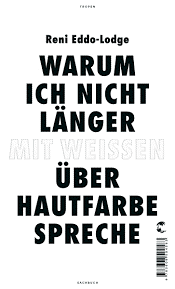 Warum ich nicht länger mit Weißen über Hautfarbe spreche – Reni Eddo Lodge (2017)
Warum ich nicht länger mit Weißen über Hautfarbe spreche – Reni Eddo Lodge (2017)
In "Warum ich nicht länger mit Weißen über Hautfarbe spreche", Reni Eddo-Lodge takes a critical look at structural and institutional racism, especially in Great Britain. She describes how whites often cannot or do not want to understand the burden racist discrimination represents for those affected, as they themselves benefit from these structures. Eddo-Lodge sheds light on topics such as white privilege, historical oppression and the silence of the majority society about racism. She calls on readers to actively deal with their own role in the system and to take responsibility in the fight against racism. The book is direct, provocative and intended to encourage action and questioning.
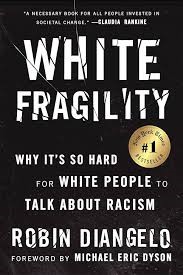 White Fragility – Robin DiAngelo (2018)
White Fragility – Robin DiAngelo (2018)
In "White Fragility", Robin DiAngelo examines the phenomenon of "white fragility", i.e. the often strong defensive attitude of white people when it comes to the topic of racism. DiAngelo explains how white people unconsciously perpetuate racist structures by sealing themselves off from conversations about racism through emotions such as anger, fear, or guilt. These reactions prevent a deeper debate and cement existing inequalities. The book calls on people to honestly reflect on their own privileges and defense mechanisms and to take responsibility in dismantling racist structures. With practical approaches and sharp analyses, DiAngelo provides tools to promote anti-racist thinking and action.
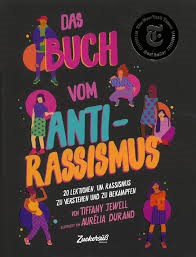 Das Buch vom Antirassismus: 20 Lektionen über Rassismus und was wir alle dagegen tun können – Tiffany Jewel (2020)
Das Buch vom Antirassismus: 20 Lektionen über Rassismus und was wir alle dagegen tun können – Tiffany Jewel (2020)
In "Das Buch vom Antirassismus: 20 Lektionen über Rassismus und was wir alle dagegen tun können", Tiffany Jewell offers an easy-to-understand introduction to the topic of racism and how to take action against it. The book is primarily aimed at young readers and explains basic terms such as racism, privilege and discrimination in 20 lessons. Jewell imparts knowledge about the historical and current structures of racism and shows concrete ways in which each individual can stand up for equality. With interactive exercises and reflection questions, the book invites you to recognize your own prejudices and develop an anti-racist attitude. Jewell's work is practice-oriented and encourages young people in particular to contribute to change and justice.
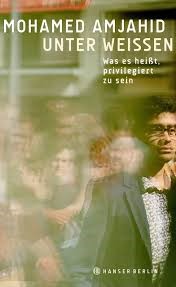 Unter Weißen. Was es heißt privilegiert zu sein – Mohamed Amjahid (2017)
Unter Weißen. Was es heißt privilegiert zu sein – Mohamed Amjahid (2017)
In "Unter Weißen. Was es heißt privilegiert zu sein", Mohamed Amjahid reflects on his experiences as a PoC man in a society dominated by white norms. He analyzes what it means to be privileged and sheds light on the often invisible advantages that white people enjoy because of their skin color. Amjahid combines personal stories with social analysis and criticizes the repression and ignorance of racism and discrimination by many white people. Through his honest and direct observations, he challenges readers to question their own role in the racist system and to actively stand up against inequality. The book is both informative and provocative and encourages reflection on one's own privileges and responsibilities.
 Der weiße Fleck. Eine Anleitung zu antirassistischem Denken – Mohamed Amjahid (2021)
Der weiße Fleck. Eine Anleitung zu antirassistischem Denken – Mohamed Amjahid (2021)
In "Der weiße Fleck. Eine Anleitung zu antirassistischem Denken", Mohamed Amjahid offers a critical examination of the topic of racism from the perspective of a white man. He describes how racism is often perceived as an individual problem, while in reality it is deeply rooted in social structures. Amjahid urges readers to reflect on their own prejudices and the influence of white privilege and to actively act in an anti-racist way. With clear analyses, personal experiences and practical tips, he creates awareness of the importance of dealing with racism and taking responsibility for change. The book serves as a practice-oriented guide to develop anti-racist ways of thinking and acting.
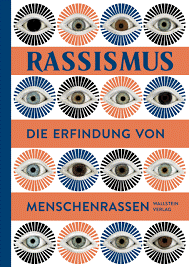 Rassismus. Die Erfindung von Menschenrassen – Susanne Wernsing, Christian Geulen, Klaus Vogel (2019)
Rassismus. Die Erfindung von Menschenrassen – Susanne Wernsing, Christian Geulen, Klaus Vogel (2019)
In "Rassismus. Die Erfindung von Menschenrassen", Susanne Wernsing, Christian Geulen and Klaus Vogel analyse the historical and social roots of racism and the construction of the term "race". They show how racist ideas have emerged over centuries and how they have influenced people's perceptions. The book deals with the development of racism in different contexts, from the colonial era to the present, and sheds light on the social mechanisms that underpin these ideologies. The authors argue that racism is not biologically based, but rather a social construction that is deeply rooted in history. Through well-founded analyses and critical reflections, the book offers important insights into how to deal with racism and the need to recognize and combat its roots.
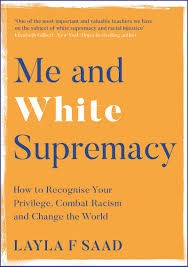 Me and White Supremacy – Layla F. Saad (2021)
Me and White Supremacy – Layla F. Saad (2021)
In "Me and White Supremacy", Layla F. Saad offers a personal and practical guide to addressing white privilege and racism. She calls on white readers to reflect on their own role in maintaining white supremacy structures and to question their own behavior. The book contains a series of exercises and reflection questions that enable readers to deal intensively with their own prejudices and racist thought patterns. Saad emphasizes the importance of a sense of responsibility and active action in the fight against racism in order to be in solidarity with marginalized communities. With an empathetic and direct approach, the book is a call for self-reflection and commitment to anti-racist work.
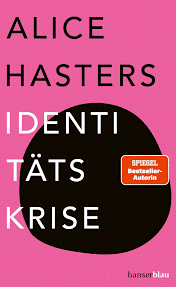 Identitätskrise – Alice Hasters (2023)
Identitätskrise – Alice Hasters (2023)
In "Identitätskrise" , Alice Hasters addresses the challenges and conflicts that come with her identity as a black woman in a society dominated by white norms. She reflects on her own experiences with racism, belonging and self-image and describes how these aspects shape her life and relationships. The book also deals with the societal expectations and stereotypes that are brought to Black people and shows how important it is to define one's own identity. Hasters combines personal narratives with social analysis and challenges readers to reflect on identity, racism and the importance of diversity. With an authentic and empathetic style, the book encourages students to deal with their own identities and social conditions.
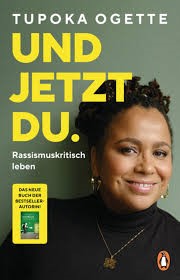 Und jetzt du. – Tupoka Ogette (2022)
Und jetzt du. – Tupoka Ogette (2022)
In "Und jetzt du." , Tupoka Ogette makes a direct appeal to white people to actively deal with racism and their own prejudices. She describes how important it is not only to inform oneself about racism, but also to take responsibility and actively take action against discriminatory structures. Ogette gives practical tips and suggestions to question one's own thoughts and actions and to develop an anti-racist attitude. The book is a mixture of personal experiences, social analysis and concrete instructions for action. With a clear and motivating style, she encourages readers to find their place in the fight against racism and to take action.
Videos
 Keine Ausländer - und dich ein Fremder: Alltagsrassismus (19.02.2020)
Keine Ausländer - und dich ein Fremder: Alltagsrassismus (19.02.2020)
In this video, experiences of German people with a migration background are shared. The dilemma of an identity crisis is shown and deepened. Topics such as microaggressions, stereotyping and othering are also addressed.

Shit some white Germans say to Black Germans (27.06.2012)
In the video, racist micro-aggressions and stereotypes are presented using sketches/case studies. It shows what Black people in Germany are confronted with.

Aamer Rahman (Fear of a Brown Planet) - Reverse Racism (28.11.2013)
Aamer Rahman explains in a comedic bit why reverse racism doesn't exist. He states his point with the help of historic examples and the origin of racism.
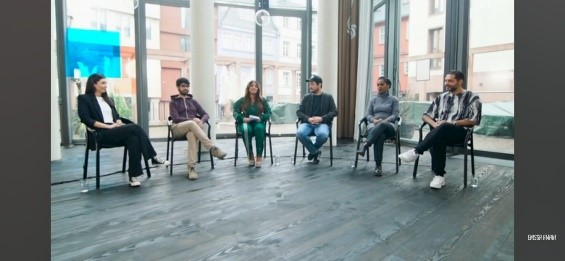 Die beste Instanz presented by Enissa Amani (09.02.2021)
Die beste Instanz presented by Enissa Amani (09.02.2021)
Enissa Amani will host a Panelltalk with guests Natasha A. Kelly, Nava Zarabian, Max Czollek, Gianni Jovanovic and Mohamed Amjahid. In the conversation, the reality of PoC in Germany will be reported and discussed by the experts. This is a response to the episode of the "Last Instance" that was broadcast at the time, which reproduced racial discrimination.
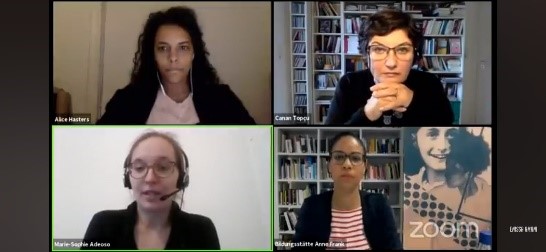 StreitBar #14: Rassismus - Brauchen wir einen neuen Begriff dafür? (04.02.2021)
StreitBar #14: Rassismus - Brauchen wir einen neuen Begriff dafür? (04.02.2021)
In the conversation with Alice Hasters, Canan Topeu and Hadija Haruna-Oelker, (anti-)racism is discussed. Which terms can be adopted from the Anglo-American or academic context and are there alternative terms? How can constructive discourses arise?
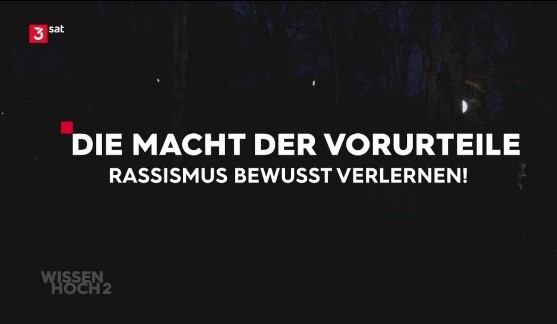 Die Macht der Vorurteile (07.04.2022)
Die Macht der Vorurteile (07.04.2022)
People of all skin colors and origins are more than 99.99% the same in their genetic makeup. Nevertheless, racism is deeply rooted in supposedly enlightened Germany. Why is that?
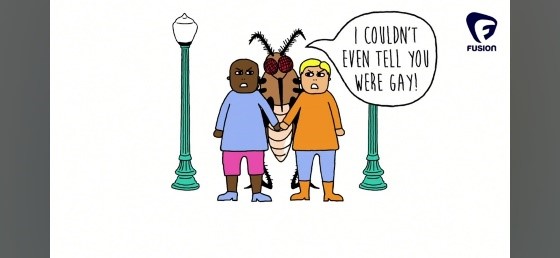
How microaggressions are like mosquito bites (05.10.2016)
For people that still don't think microgressions are a problem: just imagine that instead of being a stupid comment, a microaggression is a mosquito bite. The comparison explains microaggressions in a very understandable way.

What is intersectionality? (22.04.2018)
The video explains the term intersectionality perfectly through animated visuals.
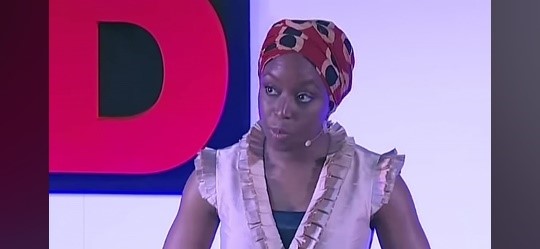
Chimamanda Ngozi Adichie - The danger of a single story (07.10.2009)
Novelist Chimamanda Ngozi Adichie tells the story of how she found her authentic cultural voice - and warns that if we hear only a single story about another person or country, we risk a critical misunderstanding.
